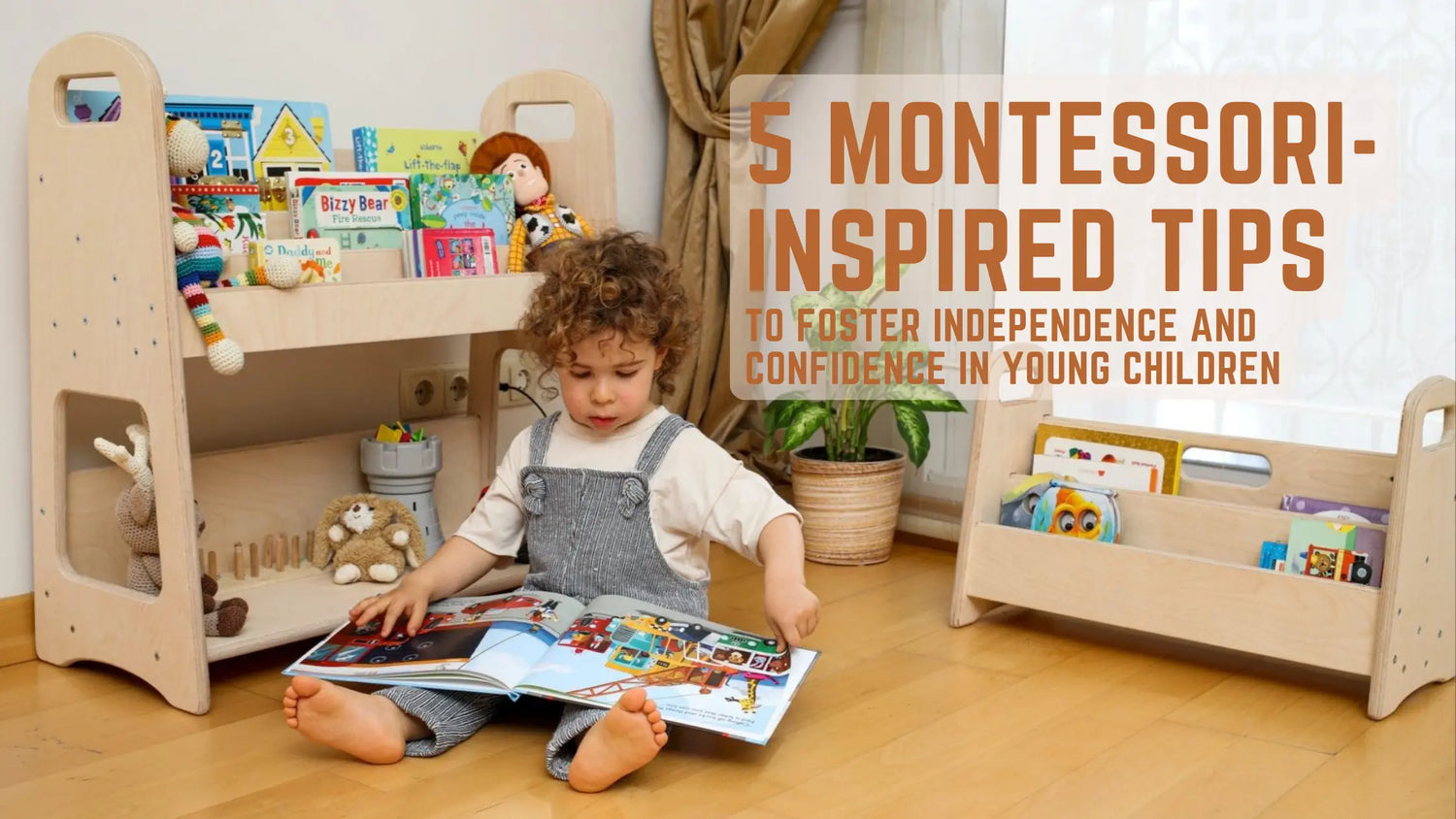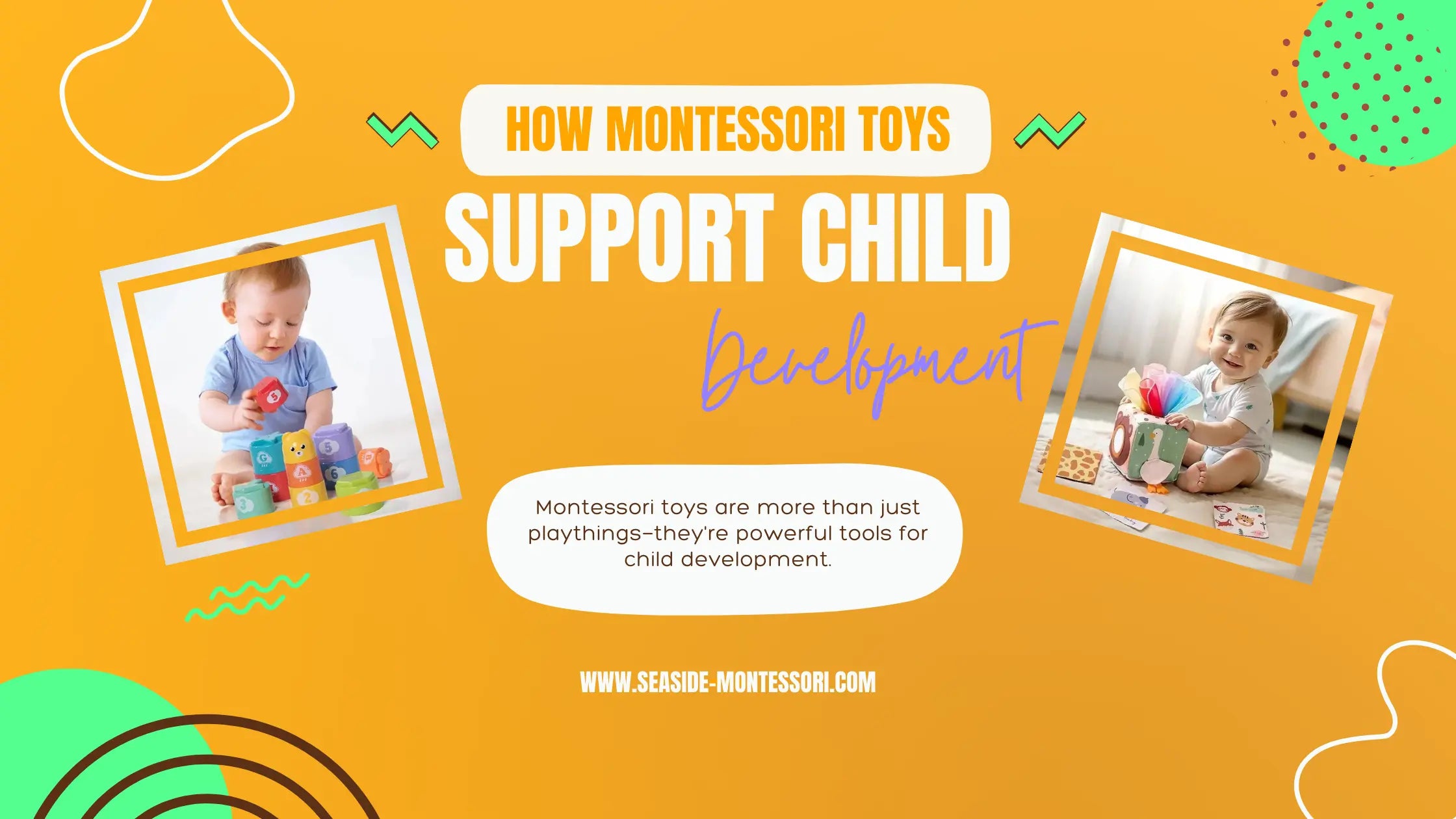5 Montessori-Inspired Tips to Foster Independence and Confidence in Young Children
As parents and educators, one of our most important roles is to guide children in becoming confident, independent individuals. In Montessori education, fostering independence isn’t just a goal—it’s the foundation of everything we do.
From everyday routines to the way we prepare the environment, each moment is an opportunity for children to grow in autonomy and self-belief. In this post, we’ll share 5 Montessori-inspired tips you can easily implement at home to help your little one build confidence and independence—starting today.
1. Make Their Environment Accessible
Montessori philosophy emphasizes preparing an environment where the child can act independently.
Place furniture, toys, and clothing at your child’s height so they can reach them without help. A child-sized clothing rack, for example, allows them to choose their outfit each morning—boosting confidence and building decision-making skills.
Tip: Our Montessori Wooden Kids Clothing Rack is a perfect way to support this habit of independence!
2. Give Them Real Responsibilities
Children thrive when they feel useful. Including them in real tasks—like watering plants, wiping tables, or helping with cooking—nurtures a sense of purpose. These activities not only develop practical skills but also show them that their contributions matter.
Start with simple, safe tasks and gradually increase responsibility as they grow.
3. Be Patient and Let Them Try
It can be tempting to jump in when something seems too hard or messy—but letting children try (and even struggle a little) is essential. It’s through these small challenges that they build resilience and pride.
Offer gentle encouragement and step back when possible. Their “I did it!” moments are worth every second of patience.
4. Offer Limited, Age-Appropriate Choices
Giving your child choices supports autonomy and critical thinking. But too many options can overwhelm.
Instead, offer 2–3 options: “Would you like to wear the blue shirt or the red one?” or “Do you want to read this book or that one?”
This helps them practice decision-making in a safe and manageable way.

5. Celebrate Effort, Not Just Results
A key Montessori principle is focusing on the process over the outcome. Praise your child’s effort rather than only the result.
Say things like:
“You worked hard to zip your jacket all by yourself!”
“I love how carefully you folded your clothes!”
These affirmations build inner confidence and encourage a growth mindset.
Final Thoughts
Fostering independence doesn’t mean expecting perfection—it means guiding your child to believe in themselves. With small steps, a prepared environment, and lots of encouragement, your child will bloom with confidence.
If you’re looking for tools to support this journey, we invite you to explore our Montessori Wooden Kids Clothing Rack and other beautifully designed, child-sized products that empower children to take the lead in their daily lives.
Because when children are trusted, they thrive. 💛









Leave a comment
All comments are moderated before being published.
This site is protected by hCaptcha and the hCaptcha Privacy Policy and Terms of Service apply.